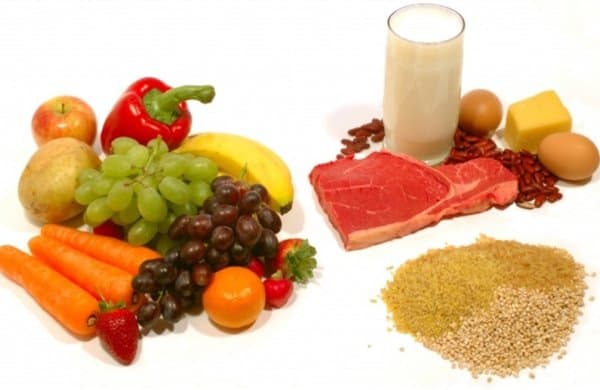Ignorance is bliss. However, this age old adage does not fit the bill as far as diet and nutrition is concerned. People often believe what they hear even when it is something that is not backed with adequate facts. Several myths related to diet and nutrition in fact deteriorate your health condition. It is therefore important to know the actual facts. Listed below are some of the most common diet and nutrition myths.
1. Sugar causes diabetes
This is probably the most common nutritional myth. Studies say that sugar is not the initial cause of diabetes. However, if you are diabetic, you definitely have to be mindful of how much sugar and carbohydrate content you consume on a daily basis, but that is not what caused your condition at the first place. In normal circumstances, sugar intake would not give you diabetes. It is actually the calories and sedentary lifestyle that lead to obesity and a number of other lifestyle disorders including Type 2 diabetes. But this does not mean you can binge upon your favorite sweets and desserts all the time. All sweet things are high in calorific value, thereby causing all the ill effects.
2. All fats are bad
The word “Fat” is almost synonymous to bad. This is not the case in reality. Not all fat is bad. In fact, your body needs a minimal amount of fat regularly for various processes like absorption of important nutrients, nerve transmission, maintaining membrane integrity etc. It is only when bad fats i.e. saturated fats and trans fats are consumed in excess that the body starts to store fat under the muscle tissues which results in weight gain, heart diseases and some types of cancers. Idea is to limit the consumption of bad fats and have more of good fats i.e. monounsaturated fats and polyunsaturated fats. Avocado, canola and olive oil are most common type of monounsaturated fats. This type of fat is also found in nuts like peanuts, walnuts, almonds and pistachios. Sunflower oil, omega 3 fatty acids, soy, corn, fish oil and salmon are important sources of polyunsaturated fats.
3. Brown sugar versus white sugar
People often believe that brown sugar is better than white sugar. The brown sugar that you commonly get at grocery stores is nothing but routine white granulated sugar to which molasses are added. Brown sugar does contain some amount of mineral, but given the fact that no one really consumes a mammoth portion, it really does not make any significant difference.
4. Brown eggs are more nutritious than white eggs
The difference is only in the outer appearance and not in inherent properties. The eggshell color has in fact nothing to do with the quality, taste, nutritional value, cooking properties etc of an egg. Eggshell gets its color depending upon the breed of the hen.
5. Seafood raises blood cholesterol
It is actually bad fats i.e. saturated fats and trans fatty acids that raise blood cholesterol. Bad fats are mostly found in meat products, processed foods, deep-fried snacks etc. Seafood on the other hand contains polyunsaturated fats that are actually nutritive if consumed in right quantities.
6. Avoid carbohydrate to lose weight
Popular belief is that carbohydrates activate insulin production, which in turn results in weight gain. Therefore, a low carbohydrate diet is essential for losing weight. This is indeed a myth.
Body requires sufficient amount of carbohydrates to perform various functions. Most low-carb diets do not provide enough carbohydrates required for daily maintenance. Consequently, your body starts to burn stored carbohydrates i.e. glycogen so as to obtain energy. In this process, a lot of water is released resulting short term weight loss. All such low-carb diets including the infamous Atkins diet are mere fats and only give short-term results. Moreover, it is not a good idea to exclude good carbohydrates such as beans, whole grains, fruits and vegetables from your diet altogether. Having said that, low carb diet is very essential in diabetes management.
7. Avoid nuts as they are fattening
Nuts have many health benefits. Nuts are in fact high in monounsaturated and polyunsaturated fats that actually help in lowering cholesterol levels. Key is to have them in appropriate portions and in the raw form i.e. without deep frying or roasting them in oil and adding unnecessary salt. Studies say that including 1.5 ounces of nuts in your diet daily, it is rather good for your heart.
8. Eating for two is necessary during pregnancy
Most women think they can indulge to their heart’s content without feeling guilty during pregnancy. This is not right. It is normally recommended that calorie consumption per day should increase by 100 kcal in the first trimester and 300 kcal in the second and third trimesters. More importantly, it is the quality of diet that matters and not the quantity.
9. Skip meals to lose weight
People desperate to lose weight often starve themselves to death and still wonder why are they not losing any weight. That is because of the simple fact that dieting never really works. The initial weight loss that you might experience is basically on account of fluid loss. Dieting actually puts your body into starvation mode where in your body starts to store fat resulting in slower metabolism. Eating small portions of healthy food frequently keeps your blood sugar level balanced and metabolism going.
10. Red meat is bad for health
Red meat definitely contains more content of saturated fats as compared to poultry like chicken and turkey. It is because of the high saturated fat content that red meat is often associated with a number of heart diseases. However, there is no need to exclude red meat from your diet altogether. Just be careful of the serving portion or choose leaner cuts of the beef and pork.




